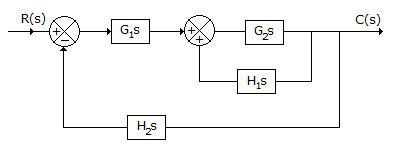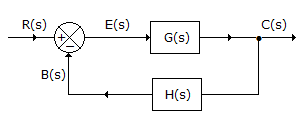ECE :: Automatic Control Systems
-
The system in the given figure

-
Assertion (A): In the given figure open loop transfer function =


Reason (R): The ratio
 is called feed forward transfer function.
is called feed forward transfer function. -
One advantage of using polar plot is that it depicts the frequency response characteristics over the entire frequency.
-
The force required to initiate motion between two contacting surfaces is called
-
Assertion (A): Derivative control action cannot be used alone.
Reason (R): Derivative control action is effective only during transient periods.
-
The slope of log magnitude curve near the cut off frequency is called cut off rate.


 Whatsapp
Whatsapp
 Facebook
Facebook


 .
. , initial and final values of i(t) are
, initial and final values of i(t) are